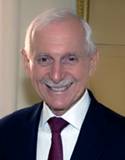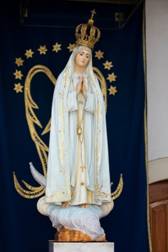Nov 2013 - four - abbey
Main menu:
- Home Page
- Abbey
- Apiary
- Documents
- Monastic
- Spirituality
- Apostleship of the Sea
- Homilies of Pope Francis
Nov 2013 - four
26. Pope to Jail Chaplains: easy to punish the weak; the ‘big fish’ swim freely
Pope Francis on Wednesday October 23, met with 200 Italian prison chaplains, who were in Rome for their annual national convention, and had come from all over the country.
In his address he asked the chaplains to greet the jail inmates on his behalf and convey to them his assurances of prayers, that he cares for them and to tell them not to lose hope. The Pope also told the chaplains to look for the Lord who is in the jail among the inmates and within them. Claiming the Lord to be a prisoner of our selfish and unjust systems, He said “We find it easy to punish the weak, but the ‘big fish’ swim freely in the water.
Referring to his visits to the Buenos Aires prisons and the telephone calls he makes to them, with all humility he admitted that he feels he is no less deserving to be in jail, more than those who are found in there, because, he said the weaknesses we have are the same and that we are sinners. He asked the chaplains to take up the important and challenging task to inspire hope in those who are detained in jails.
Here below is the text of his message with his usual off the cuff remarks, translated from the original Italian:
Thank you, and I would like to take advantage of this meeting with you who work in prisons all over Italy, in order to reach out and greet all detainees. To all of them, please say that I pray for them, I care for them, I pray the Lord and Our Lady that they can successfully clear this difficult period of their lives. …That they be not discouraged, that they do not close in: you know, one day it all goes well, another day it comes down, Those waves are difficult...
The Lord is near, but tell them with gestures, with words, with the heart that the Lord, does not stay out of their cells, does not stay out of the jail, He is in, is there. You can tell them this: the Lord is within them… even He is a prisoner yet, huh? Of our selfishness, our systems, of many injustices that find it easy to punish the weak, right? But the big fish swim freely in the water, right? No cell is isolated so as to exclude the Lord, Not one!: He's there, crying with them, he works with them, hopes with them. His paternal and maternal love reaches everywhere. I pray that each open our hearts to the love of the Lord. And also, when I receive a letter from one of them -
And I pray for you too Chaplains, for your ministry, it is not easy, huh?, Very challenging and very important. It expresses one of the works of mercy; also makes visible the presence of the Lord in jail, in the cell ... You are a sign of Christ's nearness to these brothers who are in need of hope. Recently, you spoke of a justice of reconciliation, no? Even a justice of hope, open doors, horizons ... This is not a utopia: it can be done. It is not easy, because of our weakness we are everywhere, even the devil is everywhere, temptations are everywhere ... but always look for the one, right? I hope that the Lord be with you always, bless you and Our Lady protect you, huh? Also from the hand of the Virgin Mary, because she is the Mother of all of you and all of them in jail, huh? I wish you that. Thank you.
The Lord bless you and Our Lady accompany you. And we ask the Lord to bless you and your friends and your friends in prisons. But before you pray to Our Lady because we always bring to Jesus: Hail Mary ...
27. Plight of migrants at heart of talks between Pope, Director of IOM
The deaths of hundreds of migrants in shipwrecks off the Italian island of Lampedusa in October were a key issue at the heart of Pope Francis’ meeting Monday, October 14, with the Director General of the International Organization for Migration, William Lacy Swing. In an interview following his meeting with the Pope in the Vatican, Ambassador Swing told Vatican Radio that he thanked Pope Francis for his “strong and continued engagement on behalf of migrants and other vulnerable people… I thanked him in particular, for being the first pope to visit Lampedusa and also to have done it within a very short time after his pontificate began.”
Ambassador Swing said he also informed the Pope that he himself would be visiting the southern Italian island on Wednesday “to try to see for myself the situation and make some assessments as to what we might be able to do with our other partners in supporting, both helping the migrants and helping the officials there to manage the situation humanely and effectively.”
On his pastoral visit to Lampedusa this past summer, Pope Francis spoke of the “globalization of indifference” surrounding the plight of irregular migrants. “I certainly share his view. He was very critical of all of us in the international community and I confessed that we haven’t done enough. For whatever reason…much of the industrialized world has become much more suspicious of migratory movements when in fact, so many of these people are actually needed in order for skills to be available and jobs to be filled and economies to flourish. So, I said to him that I thought his criticism was well placed and would be useful to all of us as we look at what we’re doing. “ European leaders are investigating measures including increasing boat patrols of the Union’s maritime borders, creating safe passage corridors, and patrolling ports of origin. Ambassador Swing says of such measures: “I think the top priority now has to be saving life. I think (of the) life-
European leaders are investigating measures including increasing boat patrols of the Union’s maritime borders, creating safe passage corridors, and patrolling ports of origin. Ambassador Swing says of such measures: “I think the top priority now has to be saving life. I think (of the) life-
28. Pope Francis: Say Yes to God like Mary
Over 100 thousand people came to St Peter’s Square on Sunday October 13, to see Pope Francis entrust the world to the Immaculate Heart of Mary. The statue of Our Lady of Fatima, which had been brought to the Square the evening before, took centre stage as the Holy Father made an act of Devotion in front of her. In prayer he said, “We are confident that each of us is precious in your sight, guard our lives in your arms: bless and strengthen every desire for goodness.”
It was the culmination of a morning in which the Pope celebrated Mass on this, the feast of Our Lady of Fatima. The devotion to Our Lady was very much in evidence as many of those present held up images of Mary and clasped in their hands miniature statues of Our Lady of Fatima as they listened to the Pope’s homily.
Pope Francis who is well known for his devotion to the Blessed Virgin said that it was a day to consider one of the marvelous things Mary had done, that was “to be chosen to be the Mother of God”. Taking Sunday’s liturgy as his inspiration, Pope Francis reflected on three things. They were that God surprises us, God asks us to be faithful and God is our strength. Referring to Mary the Holy Father said God surprised Mary, but despite this she was able to say, “Here I am, the servant of the Lord, be it done onto me according to your word.” The Pope went on to say that God does surprise us, he wreaks havoc with our plans, but he also says “trust me, do not be afraid”.
In his second reflection “God asks us to be faithful” Pope Francis explained that God is loving, but he also “demands that we be faithful in following him”. Mary was that faithful follower, he continued, she said her “yes” to God both in moments of joy and sorrow.” The Holy Father then said, our duty is to “walk with God always, even in moments of weakness, even in our sins. That, he added, is what is means to be “a full- In his third point, “God is our Strength”, Pope Francis said that Mary gave praise and thanks to God. She did this, the Pope stressed because, “Everything is his gift. He is our strength!” He also underlined the importance of not taking things for granted and asked people to remember, three key words, sorry, excuse me and thank you. As the statue of Our Lady of Fatima watched over the many thousands in St Peter’s Square, the Pope in his Angelus took the opportunity to say “Thank You” to those who had come from near and far for this weekend of faith dedicated to Mary Our Mother.
In his third point, “God is our Strength”, Pope Francis said that Mary gave praise and thanks to God. She did this, the Pope stressed because, “Everything is his gift. He is our strength!” He also underlined the importance of not taking things for granted and asked people to remember, three key words, sorry, excuse me and thank you. As the statue of Our Lady of Fatima watched over the many thousands in St Peter’s Square, the Pope in his Angelus took the opportunity to say “Thank You” to those who had come from near and far for this weekend of faith dedicated to Mary Our Mother.
29. Pope declares new saint, advances causes for canonization
Pope Francis on October 11, declared a new saint and advanced seven other causes for sainthood, the latter including a North American religious sister and two laymen. A statement, issued Friday by the Congregation for the Causes of Saints, said the Pope has recognized the sainthood of Medieval mystic Blessed Angela da Foligno (Pictured) and “enrolled her” on the Church’s official “catalogue of saints”.
A laywoman and member of the Secular Franciscan Order, Blessed Angela was born in a well- The Pope also authorized a decree, attributing a miracle to the intercession of Venerable Maria Assunta Caterina Marchetti (1871-
The Pope also authorized a decree, attributing a miracle to the intercession of Venerable Maria Assunta Caterina Marchetti (1871-
The decree also recognizes the heroic virtues of:
Bp Pio Alberto Del Corona
Attilio Luciano Giordani
Sr. Maria Eleonora Giorgi
Amato Ronconi
Sr. Marie Elisabeth Turgeon
Sr. Maria Jane Wilson
 On Thursday October 31, 2013, Pope Francis declared an Austrian-
On Thursday October 31, 2013, Pope Francis declared an Austrian-
The Pope also recognized the heroic virtues of Onoria “Nano” Nagle, an Irish nun who founded the Congregation of the Presentation Sisters. She devoted her life to promoting education, especially for the poor and needy.
Italian Olga Gugelmo was known for her simplicity as well as her devotion and service to the Church. She died in 1943 from meningitis.
American nun Celestina Bottego. She was a teacher in Italy who later founded the Missionary Society of Mary, a congregation dedicated to helping out the poor and needy worldwide.
30. Pope calls for “mutual forgiveness between Catholics and Lutherans”
“Catholics and Lutherans can ask forgiveness for the harm they have caused one another and for their offenses committed in the sight of God,” Pope Francis said during Monday, October 21, audience with the delegation of the Lutheran World Federation and representatives of the Lutheran-
“It is with a sense of profound gratitude to our Lord Jesus Christ that I think of the many advances made in relations between Lutherans and Catholics in these past decades, not only through theological dialogue, but also through fraternal cooperation in a variety of pastoral settings, and above all, in the commitment to progress in spiritual ecumenism. In a certain sense, this last area constitutes the soul of our journey towards full communion, and permits us even now a foretaste of its results, however imperfect. In the measure in which we draw closer to our Lord Jesus Christ in humility of spirit, we are certain to draw closer to one another. And, in the measure in which we ask the Lord for the gift of unity, we are sure that he will take us by the hand and be our guide,” Pope Francis said.
“This year, as a result of a now fifty year old theological dialogue and with a view to the commemoration of the five-
“Catholics and Lutherans can ask forgiveness for the harm they have caused one another and for their offenses committed in the sight of God. Together we can rejoice in the longing for unity which the Lord has awakened in our hearts, and which makes us look with hope to the future. I am certain,” Pope Francis went on to say, “that we will continue our journey of dialogue and of communion, addressing fundamental questions as well as differences in the fields of anthropology and ethics. Certainly, there is no lack of difficulties, and none will lack in the future. They will continue to require patience, dialogue and mutual understanding. But we must not be afraid! We know well – as Benedict XVI often reminded us – that unity is not primarily the fruit of our labours, but the working of the Holy Spirit, to whom we must open our hearts in faith, so that he will lead us along the paths of reconciliation and communion.”
31. Vatican brings in outside firm to investigate financial office
APSA, which has two divisions, manages the Vatican's real estate holdings in Rome and elsewhere in Italy, pays the salaries of Vatican employees, and acts as a purchasing office and human resources department. It also manages the Vatican's financial and stock portfolio.
A Vatican statement said the Promontory Financial Group would carry out a due diligence procedure of both sections, looking into its financial and economic activities and its management procedures. The same company is helping the Vatican bank comb through its accounts in order to meet international financial standards and eliminate those which could be used for money laundering.
The aim of the procedure, believed to be the first time an outside company has looked into APSA's books, was "to deepen the checks into the financial and management situation at APSA," a statement said.
32. Pope’s first spiritual retreat outside Vatican
Pope Francis has decided that his first spiritual exercise or retreat with officials of the Roman curia next year will not be held in the Vatican as with past popes, but outside Rome. As the venue of the retreat, the Pope chosen the house of the Paulines or the Society of St. Paul, in Albano Laziale, just outside Rome, not far from the summer papal residence of Castel Gandolfo.
The Holy See’s Press Office said that the Pope has already sent invitations to the heads of Vatican dicasteries (or departments) to gather there with him, March 9-